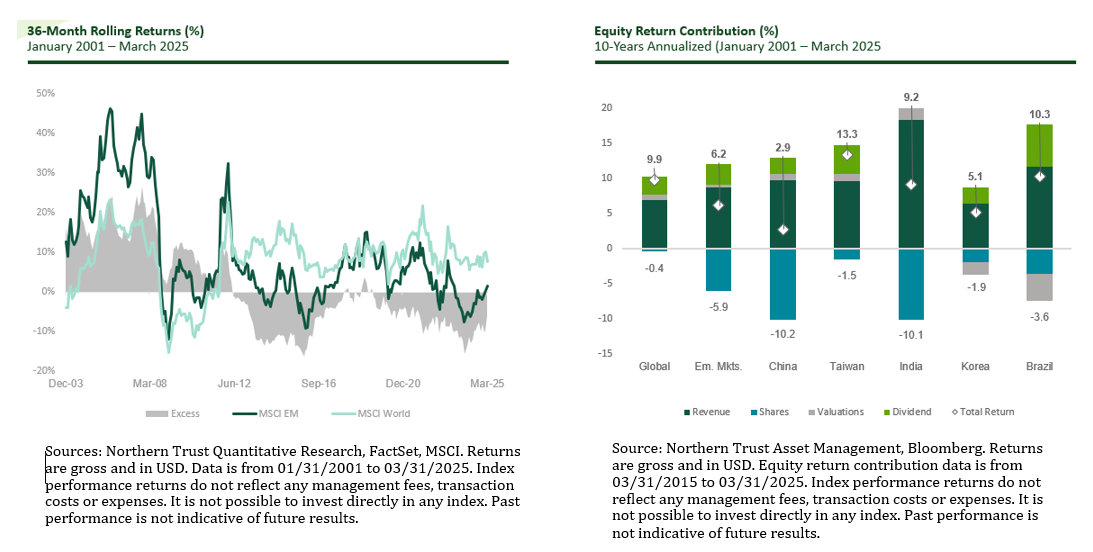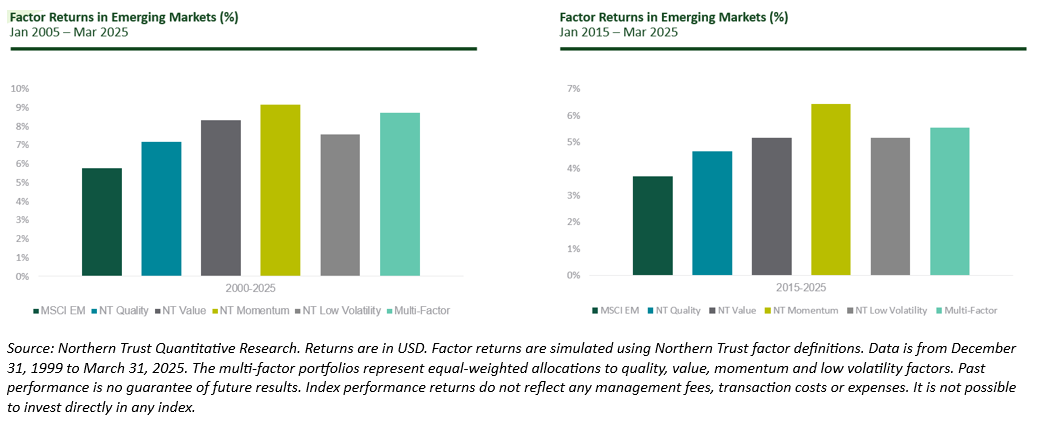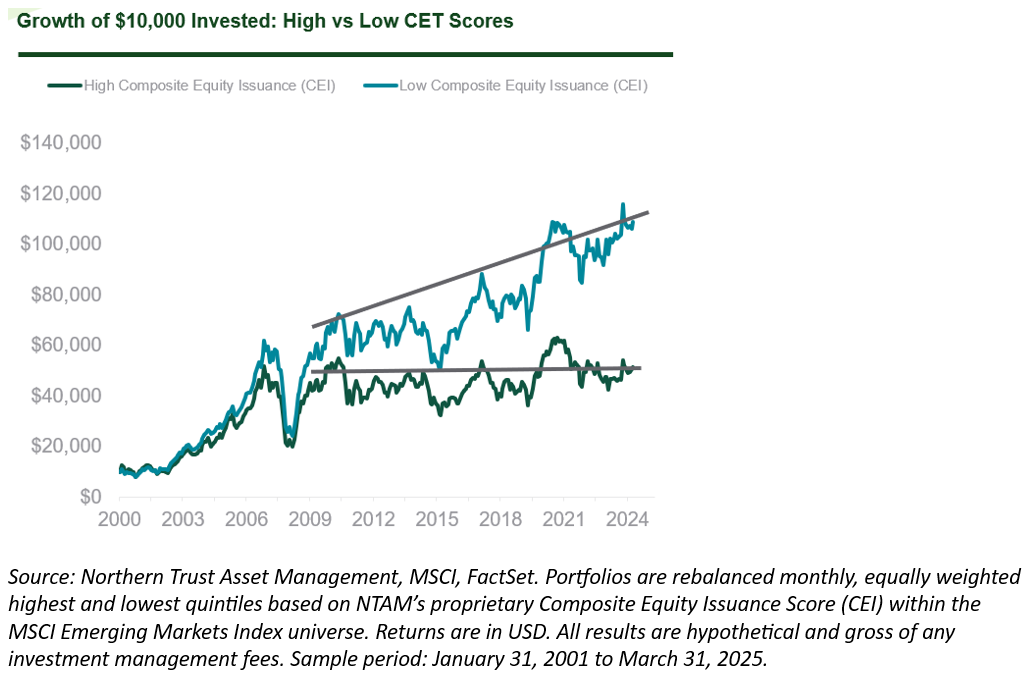Elevating your emerging markets game planBY JAN ROHOF | FRIDAY, 23 MAY 2025 11:02AMEmerging markets have long attracted investors chasing growth and diversification - offering the kind of long-term potential that can reshape a portfolio. But after several years of underwhelming returns, many investors - including Australian super funds and other asset owners - are asking a hard question: do emerging markets still belong in a modern investment strategy? If so, how do we appropriately weight emerging markets exposure? The answer, it turns out, may be twofold: improving the emerging market beta and rethinking how investors access these markets. Research from Northern Trust Asset Management shows that the recent underperformance of emerging markets isn't due to weak fundamentals. In fact, these markets are posting strong earnings growth and are currently trading at some of the most attractive valuations seen in decades. The real opportunity lies in being more selective. A quantitative, or factor-based approach - which picks stocks based on traits like company's profitability, valuations, or sentiment - could help investors better capture that potential. In other words, it's not about stepping away from emerging markets - it's about stepping in with a more sophisticated strategy. How Share Issuance has hamstrung investors in Emerging Market Despite strong earnings growth, many emerging market companies have disappointed on returns - and the culprit is often excessive share issuance. This dilutes earnings per share, dragging down equity returns and masking the true performance of the asset class. The effect has been especially pronounced in markets like China, where companies frequently raise capital through new share issues to reduce debt or fund expansion. Even though these efforts are meant to strengthen the company, they can hurt existing shareholders in the short run by increasing the number of shares and reducing the value of each one. In the long run they might pay off, but only if expansion plans aren't excessive That means investors using broad emerging market indices might be putting more money into companies that constantly issue new shares - whether they realise it or not. And that can quietly drag down returns over time, becoming a hidden reason why their portfolios aren't performing as well as expected. Exhibit 1: The Cost of Equity Dilution in Emerging Markets
The Case for a More Refined, Quantitative Strategy Rather than abandoning emerging markets altogether, investors may be better served by rethinking how they gain exposure. Factor-based strategies offer amore targeted alternative - and one that has consistently outperformed broad emerging market benchmarks - offering an efficient way to access long-term growth potential. Key factors such as quality, value, momentum, and low volatility have delivered higher risk-adjusted returns over time. This is especially true in inefficient markets like emerging markets, where active selection based on data-driven insights can reveal meaningful advantages. By sidestepping the structural limitations of traditional indices - including overrepresentation of low-quality or high-issuance companies - this approach focuses capital on businesses with strong fundamentals, sound capital management, and long-term growth potential. It's not just about chasing growth. It's about achieving it with resilience, even in volatile and unpredictable conditions. Exhibit 2: The Persistent Performance of Style Factor
Northern Trust Asset Management's proprietary Composite Equity Issuance (CEI) score adds a valuable layer of discipline by helping identify companies that manage capital more efficiently. In markets where dilution risk is high, prioritising companies with low CEI scores can help investors avoid the impact of frequent share issuance and allocate capital toward businesses with stronger fundamentals and more effective capital allocation.
It's Time to Re-Evaluate, Not Capitulate Emerging markets still offer significant long-term growth - but the traditional stock-picking or passive investing strategies aren't offering the best results. Factor based strategies may offer a more efficient approach: A quantitative strategy, driven by data and algorithms, eliminates the need for active management fees and high-touch research. This results in lower trading costs and the ability to scale effectively, while still focusing on the market's core fundamentals. Equally important is the diversification benefit. Stock-picking strategies often concentrate risk in a small number of high-conviction names. A quantitative approach spreads exposure across factors like quality, value, momentum, and low volatility, diffusing single-stock risk and capturing opportunity across cycles. Yes, volatility persists - but a disciplined quant lens has greater potential to turn turbulence into alpha. Emerging markets are still poised for growth, and it's the right time to refocus - not retreat. A quantitative strategy isn't just another option; it's a cost-efficient way to tap into the long-term potential these economies offer. |
Latest News
Mercer SmartPath returns exceed 12%
|Future Group reveals super fund returns, fee changes
|AustralianSuper's MySuper option returns 9.5%
Cbus, Rest deliver 'strong' returns amid heightened volatility
Cover Story

Climbing to the top
MANAGING DIRECTOR
VANGUARD INVESTMENTS AUSTRALIA LTD

























